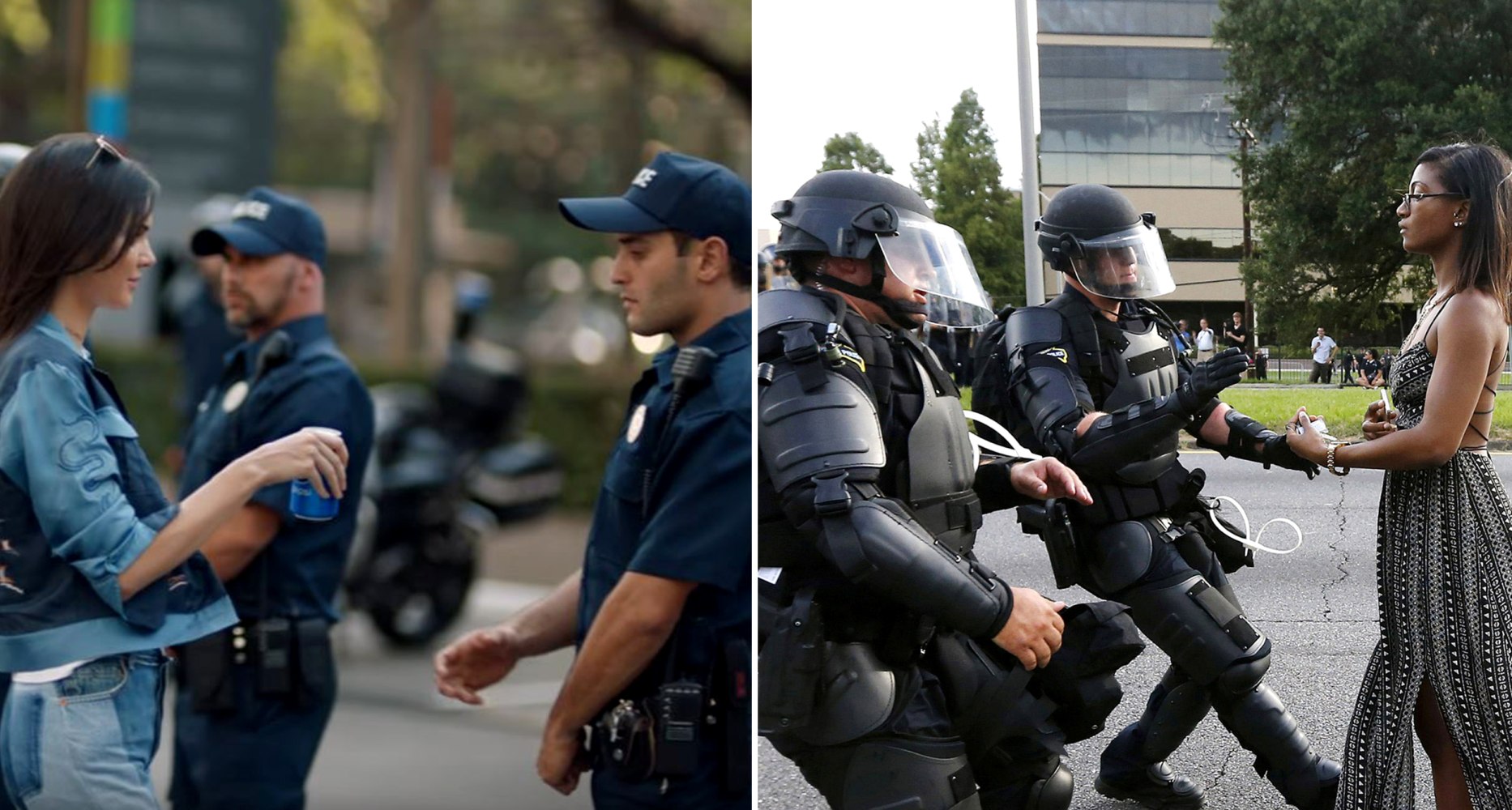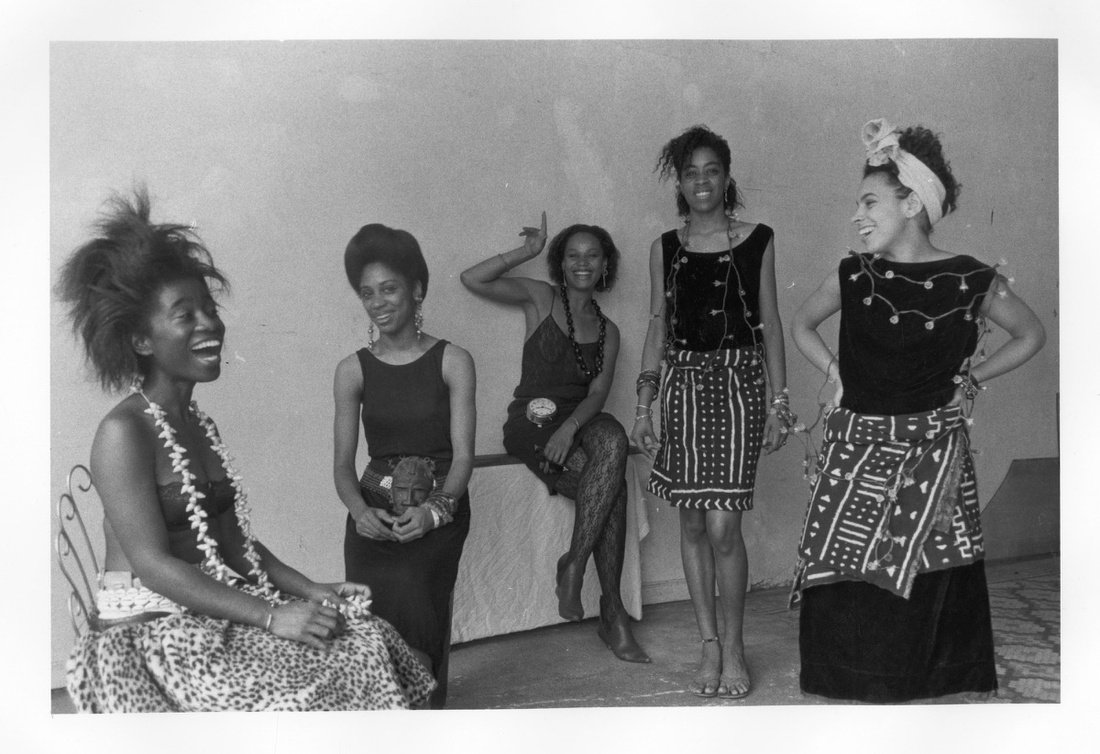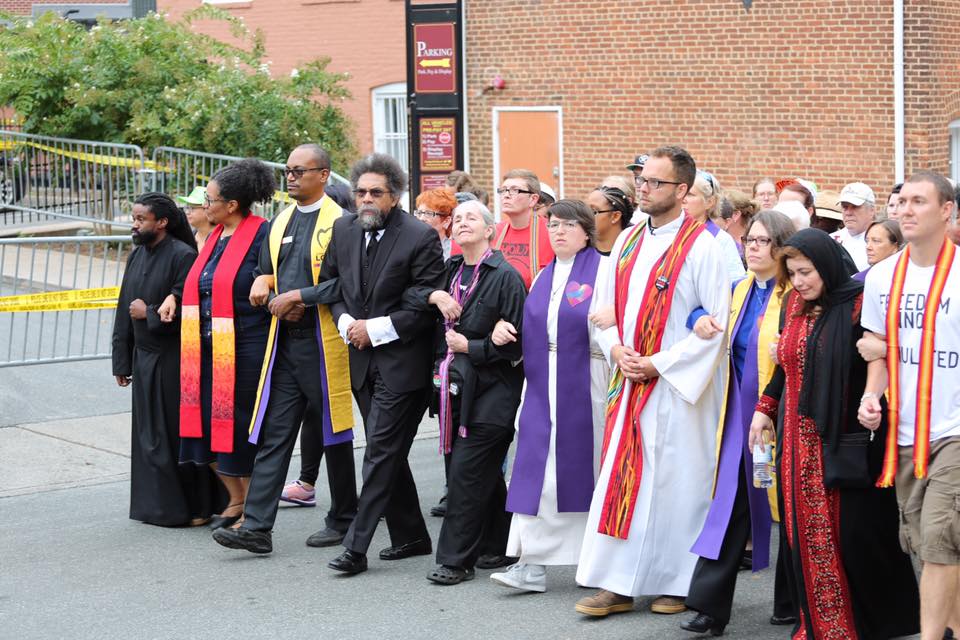 The following is adapted from a brief address given at the 2017 All People Conference in Columbus, OH. The theme for the event was based on Nehemiah 2:18--"Rise Up...and Build!"
The following is adapted from a brief address given at the 2017 All People Conference in Columbus, OH. The theme for the event was based on Nehemiah 2:18--"Rise Up...and Build!"UM Church for All People (C4AP) grew out of the relationships formed in the Free Store. It is through these diverse relationships of mutually and accompaniment that we believe we will come to know God better
And it was out of these relationships that the church was formed. Folks began praying together, and worshiping together. And so in 2002, C4AP was born. And it grew.
We host the All People Conference over a Sunday on purpose so that you can get take a deep dive into experiencing the palpable energy of the koinonia in this place. Our pastor is a bit of a Greek scholar so he uses words like that when describing C4AP. Best I can tell though, the literal translation of koinonia must just be “holy chaos,” because that sure can be what it’s like around here.
If you get a chance, I invite you to experience C4AP on a Sunday morning…and you got experience it to believe it. But I want to describe it a little bit for you here, in the meantime.
 One of the other ways that’s reflected is in the worship music. We have an excellent band that can play hymns, Black gospel, CCM, Appalachian bluegrass, and much more. We worship with all kinds of music because we want to represent the full range of who we are, and indeed who we are yet to be become…either for the next visitor that walks through the door, or for when we join together with the heavenly chorus.
One of the other ways that’s reflected is in the worship music. We have an excellent band that can play hymns, Black gospel, CCM, Appalachian bluegrass, and much more. We worship with all kinds of music because we want to represent the full range of who we are, and indeed who we are yet to be become…either for the next visitor that walks through the door, or for when we join together with the heavenly chorus.And this comes with it’s challenges. Rev. James Forbes notes that “a truly diverse congregation where anybody enjoys more than 75% of what’s going on is not thoroughly integrated.” If everyone’s always comfortable, that’s not integration…that assimilation. That’s cultural hegemony disguised as unity.
Too often the multicultural church owes its success to the people of color in the congregation simply willing to 'take it for the team' and give up their own beautiful heritage for the sake of white folks being comfortable.
So what are the rest of us willing bring as a sacrifice of praise?
This also means that if I’m doing my job as minster of music, no one is happy with me all of the time, but everybody is happy with me some of the time.
We are a Church for All People. But not all people like all people.
But we have to move from tolerance to acceptance, to affirmation, yes even to love.
We have to take these elements into ourselves and learn and grow from them.
The world will teach us tolerance…and that’s fine, there’s a place for that.
But the cross calls us to so much more.
When I come home at the end of the day I do NOT what my husband to say “baby, I tolerate you.”
Maybe that’s the truth. Sometimes tolerance is a good place to start.
But’s not what scripture says.

"Tolerate your enemies"
"Tolerate your neighbor as you tolerate yourselves."
"Tolerate one another as I have tolerated you."
No. Christ calls us to love.
But sometimes loving is hard. It’s uncomfortable.
Nobody said church was supposed to be comfortable.
It sooths, it nourishes, it comforts…but it’s not comfortable!
Here’s another distinctive element that sometimes makes our guests uncomfortable at C4AP: the sharing of joys and concerns. That’s right my friends, brace yourselves, we pass the mic! And that can bother our middle-class, and time-oriented culture friends in the room.
But let me tell you, it’s the high holy moment of the service. More than the sermon, sometimes even more than communion. It is a moment when folks that do not often get their voices heard. And they’re not voiceless...just unheard. But its a holy moment where those voices are lifted together in prayer.
It matters that someone can stand up and share that her gas is cut off, and winter is coming, and she's scared. And's she's not necessarily asking anyone to fix it, but asking for us to pray with her about it. And then the very next person may stand up and tell us that their last kid just went off to college, and their excited, but their also sad because now they're empty-nesters. And they know no one can fix it, but they're asking for us to pray with them about it. It matters that these two prayers are lifted equally before the ears of God.
 And every week we also pray the Lords Prayer. That's not so special, lots of churches do that. And we, like you, pray “give us this day.” But I have to tell you tell you I don’t really believe that prayer. I never have. I believe I went to school, got a degree, got a job. I get a paycheck and go to the grocery store. I give me my daily bread. But it matters that I'm in a pew next to someone who doesn't necessarily know where dinner is coming from tonight, but for a fact that it's God that is providing it. And they're teaching me that it's just as true in my life as well.
And every week we also pray the Lords Prayer. That's not so special, lots of churches do that. And we, like you, pray “give us this day.” But I have to tell you tell you I don’t really believe that prayer. I never have. I believe I went to school, got a degree, got a job. I get a paycheck and go to the grocery store. I give me my daily bread. But it matters that I'm in a pew next to someone who doesn't necessarily know where dinner is coming from tonight, but for a fact that it's God that is providing it. And they're teaching me that it's just as true in my life as well.I sit next to folks in worship that are diligent and practiced in relying on God, when all I know how to do is rely on myself. We worship with folks that know how to listen for God’s still small voice, and how to wait upon the Lord.
And so when my back’s against a while and I’m in my troubled times, I know who I’m turning to to ask for prayer. Every single person that walks through these doors is poor...some of us are just so poor that all we have is money.
So some folks come to C4AP because they don't feel welcome through the doors of any other church. That’s a travesty, friends. Some folks come out of deep desire to be of service for an under-privileged community. Which is good too.
Confessionally, I came for more selfish reasons. I have not come to serve the poor. I have come to sit at the feet of those that can show me the face of Christ. I come to C4AP out of a conviction that isolating ourselves among believers of similar backgrounds only deprives our own souls of God's majesty.
Rich, diverse community is how we will know who God is.
In that regard, I am really spoiled at C4AP.
Every Sunday morning, I have the privilege of worshiping with a beautiful body of believers.
We worship with old folks, young folks, wealthy, unemployed, folks who’ve done time, PhDs, GEDs, physical illnesses, mental illnesses, addictions, many races, many nationalities, many sexualities,
many backgrounds…And a whole lot of joy in the Lord. It’s holy chaos.
And I am convinced that in doing so, we draw nearer to God.
In a time when mainline denominations are wringing their hands about declining membership
and aging…buildings. I’ll let you in on a little secret: the answer is simple. I joined this church because it was a church actually, doing, the work of a church. Being what the church was supposed to be
In Rev 7:9 we see a picture of what heaven will be like someday, that "every tribe, every tongue, every nation" will worship before the thrown. So why not start now? Indeed, don’t we also pray each week, "let it be on earth as it is in heaven."
And our Triune God is our model: diverse, and unified as One. Isolation within our own groups is not what God would have for us.
My husband and I moved onto the block in a hard-living neighborhood on the South Side of Columbus to be in relationship with the surrounding community. And we adopted a value of downward mobility, not as a charitable endeavor, but as one fundamental to our own souls. And it is fundamental to life of Christ’s church on earth.
As Christians, we should be on the forefront of inclusively, not limping along in the rear.
What message does it send the world when we will not unite together to worship our Jesus?
What witness does it give when someone is more welcome on a street corner than they are in a pew?
What does it say about Christ if meth dealers are less discriminating than our churches?
What does mean when hate groups run better outreach campaigns?
As Christians, we all love Jesus.
But maybe we need to relearn what that means.
Are we Christians that love Jesus…as long as He sticks to our social norms, and knows how to behave? And knows how to put on a good face? And knows how run a meeting using Roberts Rules of order.
What about when Jesus smells funny, or speaks with a slur? Do we love him then?
Or when his music too loud, his clothes are too baggy, or his body is pierced….oh wait, it was.
Do we love Jesus when it puts our own egos is at risk?
When he ask us to lay down our own self-importance, our own desire to save the day?
Sometimes we just like to fix things, more than we actually like to love.
Do we love Jesus if we’re not called to fix it?
You may serve food at a soup kitchen, but have you eaten at the table as well?
You may pray for the poor, but do you ask for their prayers as well?
What I hope to convince you of before you leave the All People Conference this weekend is that community development is congregational development. Too often we separate service and salvation, as though that 'love thy neighbor' is something to do in the Church's spare time.
If your church disappeared tomorrow, would your neighborhood notice that you were missing?
It matters that nearly 1,000 people walk through the doors of our church each week. And it matters that we sit in in the pews together as we pray about what God has next for our community. It matters that it’s those same folks that are serving produce in our Fresh Market, and shopping in our Free Store, and working in our bike shop.
In a church where most folks make less than $20,000 per year, we see the widow’s mite go into the offering plate every single week. And it’s out of those pennies, and nickels, and dimes that we’ve done $60 million in affordable housing. We absolutely believe that. We just do.
We take the relationships that we have formed and we invest them in building the inclusive body of Christ, which then has an energy and a momentum, a holy chaos, that we are able to invest in whatever God is doing next.
We contend that we will draw nearer to God when we are in fellowship with the fuller range of God’s people. And when you draw nearing to God, powerful things start to happen.
Don't talk to me about the dying church. All this wringing of hands is driving me crazy. Let us live, and live abundantly! Isaiah 61:4 says "they will rebuild the ancient ruins and restore the places long devastated; they will renew the ruined cities that have been devastated for generations."
We’re at a critical moment in this neighborhood, indeed in this country. We’re being told it, can’t be done. That’s people cannot come together, cannot bridge the divided.
This is a moment for the Church
Th church can cast the vision for the diverse and inclusive body of Christ and then boldly live into it as a beacon to the world.
We can build a Church for All People, we can build a Columbus for All People, and dare I say it…an America for All People. Let us rise up...and build!
















.jpg)